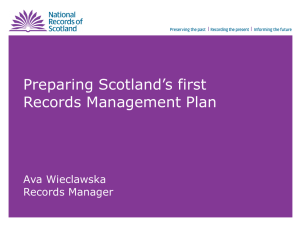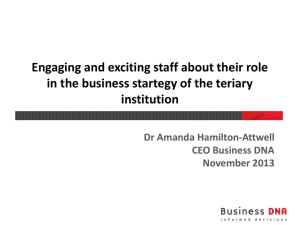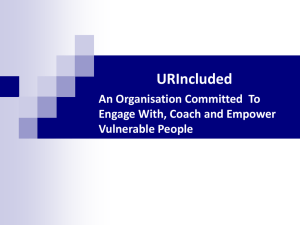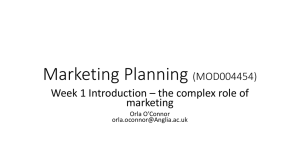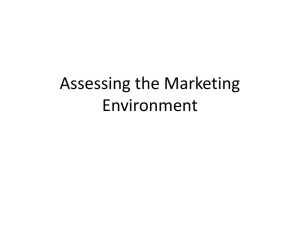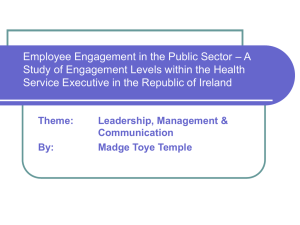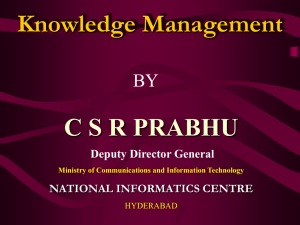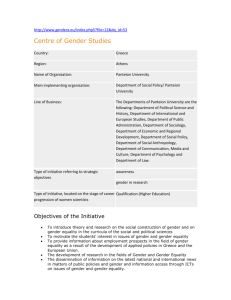HR event on performance management
advertisement
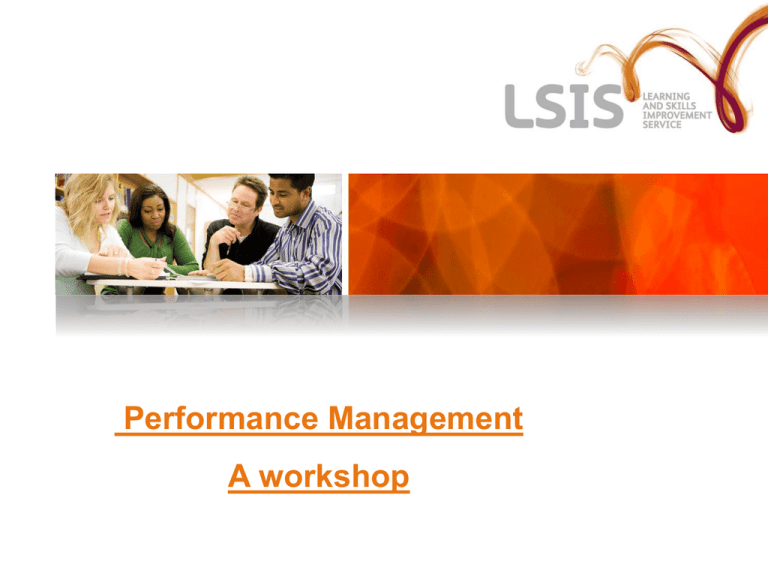
Performance Management A workshop Aim of workshop To support Human Resources managers and staff to develop their knowledge on performance management, within the context of equality and diversity. To actively consider the implications of the DRA being removed, within the context of performance management and equality and diversity. Outcomes of the workshop 1. Participants will develop a shared 2. 3. understanding of what performance management is, Participants will know more about how to create a framework which embeds equality and diversity, and supports the organisation meeting its Equality Duties, Participants will be aware of where resources can be found to support them further. Small group discussion – 10mins Language and our understanding – Working in groups of 3/ 4 discuss: What do you understand by the term: ‘ Performance Management’? Definitions “Performance management is a process which is designed to improve organisation, team and individual performance, and which is owned and driven by line managers” “Effective performance management therefore involves sharing an understanding of what needs to be achieved and then managing and developing people in such as a way that enables the shared objectives to be achieved.” Ref: ARMSTRONG, M. and BARON, A. (2004) Managing performance: performance management in action. London: Chartered Institute of Personnel and Development. In other words: “Performance management is about helping people to understand how they contribute to the strategic goals of organisations and ensuring that the right skills and effort are focused on the things that really matter to organisations and will make an impact on organisational performance.” Ref: Performance management in action – CIPD current trends and practices – discussion paper 2009 Effective practice – what is involved? What will an effective organisation be actively doing in relation to performance management? What is involved in effective performance management? Who delivers performance management? Team working together : HR write the policy Line Managers implement it. Motivation – consider: Why is performance management important? For you, as an HR professional ? For your organisation? Why is performance management important? For HR For the organisation Evidence base for everything Reduces conflict Vehicle for communication – a 2 way process Succession planning and talent management Survival of the organisation Retention of staff and reputation Tool for developing trust across the organisation motivate and manage staff identify and rectify poor performance at an early stage Prioritise what gets done and ensure there are sufficient resources to do it learn from past performance and improve future performance increase employee, learner, employers’ and public’s satisfaction with the organisation What is the potential impact on equality and diversity of each of these elements? Profile of workforce in FE in colleges: • • • • Over 35% of all staff were over 50 years old – this against the national labour market statistics of around 25% Staff aged under 25years represented the smallest staff groups across three years to 2007/8 and they were the most likely to be employed on a casual or temporary contract. The average age of teaching staff is 45 years 7% of the workforce is aged below 25 Ref:LLUK, The further Education College Workforce Data for England. An analysis of the Staff Individualised Record data 2008-2009 Labour Force Survey Consider the implications of this statement “Tight definitions and profiles that are useful for policy do not account for the vast diversity among individuals in different age ‘brackets’. Defining people by age alone misrepresents the value of an individual and their contribution to the workplace and society.” Ref:Natalie Turner Laura Williams Corporate Partners Research Programme. The ageing workforce. The Work Foundation. 2005 Reflect on these questions: What is our ( in relation to your organisation) current data on the profile of our workforce, including data on age, ethnicity, gender, disability, transgender, sexual orientation, religion and belief, marriage and civil partnership? Was this data also collected in relation to all types of contract: part time, full time, permanent, temporary? Was this data collected in relation to learning and development opportunities ? Creating your performance management framework : some questions: How does my organisation describe ‘performance management’? What do we want to achieve through performance management? What tools will most effectively manage performance in my organisational context? Who are the stakeholders in performance management and what benefits should they be getting? How should the impact of performance management be assessed and evaluated? Planning cycle for performance management Tools for performance management What are the tools for performance management? And who uses them? Group discussion. Tools for Performance Management • • • • • • • • • • • • • • • SAR Business Plan QIP OT2 Meetings : team/ college Appraisals Pay reviews and bonuses Budgets Induction Funding Supervision CPD Coaching and mentoring Line managers and understanding bias Equality impact assessments Consider this quote: “If it is only bad people who are prejudiced, that would not have such a strong effect. Most people would not wish to imitate them—and so, such prejudices would not have much effect—except in exceptional times. It is the prejudices of good people that are so dangerous.” Ref: Vikram Seth. A suitable boy. London: Phoenix, 1993. Summary • • • • • • Clear common understanding of what you define as performance management in your organisation. Design the map of your performance framework and how this integrates with your strategic business planning Consider the impact on equality and diversity Identify the tools you are going to use to measure performance Consider who is going to use the tools and if they have the training and skills Consider the potential impact on equality and diversity, Further information and resources CIPD: Performance Management. http://www.cipd.co.uk/subjects/perfmangmt/general/per fman.htm LSIS resources will be place on the Excellence Gateway soon:: Further information and resources EHRC: Using the equality duties to make fair financial decisions; ‘A guide for decision-makers’ http://www.equalityhumanrights.com/uploaded_files/PS D/using_the_equality_duty_to_make_fair_financial_d ecisions_final.pdf Professor Binna Kandola: The value of difference – Eliminating bias in organisations. A book which sets out the challenges of changing outcomes for different groups of people and offers clear and straightforward strategies that can be adopted to achieve this.



